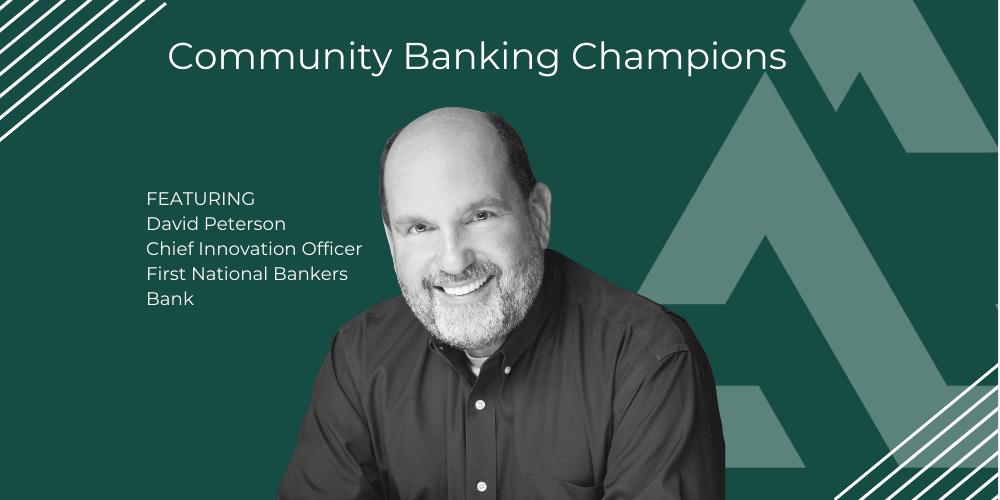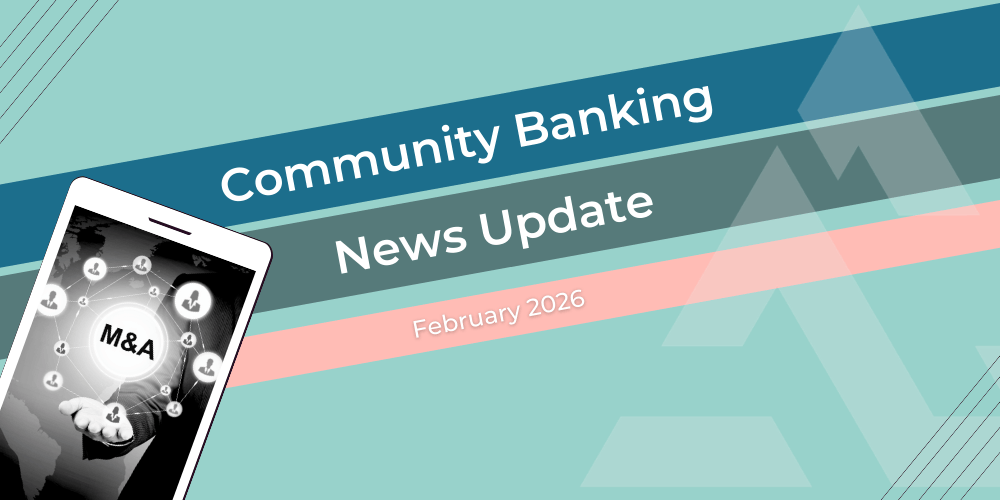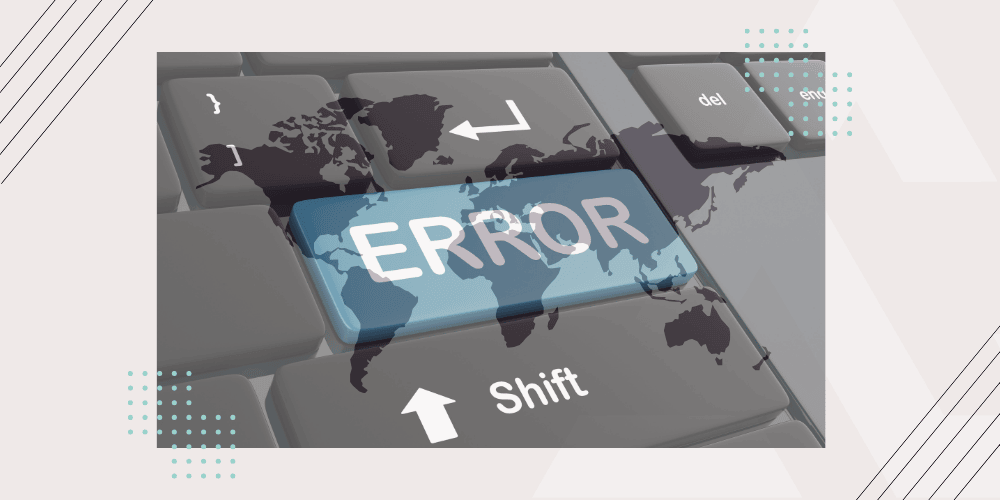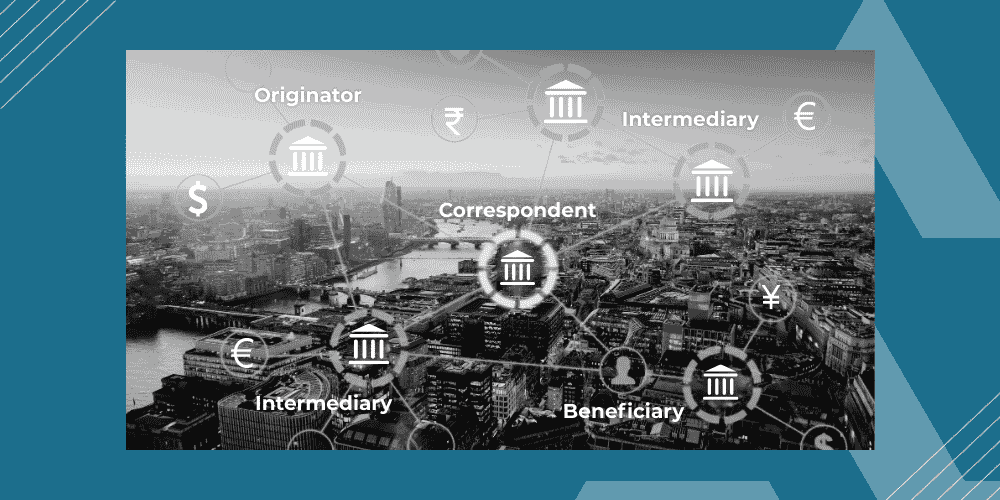From software to strategy, First National Bankers Bank Chief Innovation Officer David Peterson says banks have to swing for the fences in a digital world.
David Peterson didn’t set out to spend his life in banking; he was a young programmer who just happened to know a rare IBM coding language in demand by community banks in the early 1980s. That skill opened the door to a career that’s spanned decades, from building banking software to founding payment companies, serving on the board of Citizens Community Bank, and now as Chief Innovation Officer at First National Bankers Bank (FNBB). What’s never changed? His focus on helping community banks compete.
FNBB supports more than 680 institutions across the Southeast with correspondent services, and Peterson advocates passionately for innovation in the industry. Through writing, workshops, and strategic advising, he’s helping community banks prepare for the future, from ISO 20022 readiness to attracting the next generation of customers.
You started as a software developer for community banks. What drew you into this space?
I didn’t come into banking with a grand plan. I was a programmer who knew an IBM language that a lot of banks were using. That got me in the door, and once I started building software for community banks, I never looked back. Even though there’s been consolidation, community banks remain essential to the health and vibrancy of local communities. People don’t want to lose that local connection, even if they mostly bank online now. There’s a real sense of: "We deserve a bank in our town." And they’re right.
What’s your role as Chief Innovation Officer at FNBB?
My job is to make things that are hard or expensive for a smaller bank easier and more affordable. But I also spend a lot of time helping banks think differently. I hold brainstorming sessions at community banks where I huddle with 16 or 20 cross-functional employees, not all senior leaders, and just try to help them think differently about what it's going to mean to be a community banker in the future.
Once people see that it’s okay to share crazy ideas and that those ideas might actually get implemented, or spur others to come up with ideas, it creates a ripple effect. Innovation becomes part of the culture.
You once said innovation in banks means having a “rich fantasy life.” Why is it so hard?
Banks are trained to avoid mistakes. They’ll spend hours balancing a drawer that's off by one dollar. But innovation requires failure. You can’t swing for the fences if you’re terrified of striking out. That’s the mindset we have to shift: celebrating thoughtful experimentation, not just perfection. I use a baseball analogy: if you look at baseball statistics, generally the people who hit most of the home runs also strike out the most. So if you tell your players, ‘I don't care what you do, just don't strike out’, how many home runs do you think they’re going to hit?
How can community banks approach international payments and correspondent services?
At FNBB, we support all our customers with international payments, but for many smaller banks in rural areas, international transactions are rare. That said, we have banks that have made international payments a niche. They’re thriving because they saw the need and built the capability. Automation, especially in wire processing, will play a huge role going forward.
Read more about international wires automation:
You’ve been watching big trends like instant payments, cannabis banking, and stablecoins. Where should community banks focus?
Instant payments are real and growing. FedNow and RTP are here, and we’re supporting both. Cannabis banking is slower to reach the Southeast, but we’re watching how industrial hemp and CBD evolve for our ag-focused banks. Stablecoins and crypto are still messy. There’s no unified approach yet, so we’re staying informed and helping our banks stay prepared.
FNBB successfully implemented the ISO 20022 transition for domestic wires. Any lessons learned?
As the dust has settled, we fared way better than most in preparing for this change. Our operations team has been working on ISO 20022 for 18 months and timed our rollout for the July Fedwire deadline. It’s a massive change in data volume and formats, the adjustment akin to the migration from a typewriter to a word processor. There’s a learning curve. Banks will learn. They'll adapt to it. And I suspect that before the end of this year, everyone will just be doing ISO 20022 wires just like they always did. For international payments, we’re working with our vendor partners to meet the November deadline. The key is testing every touchpoint: initiation, approval, sending, and receiving. And have a plan for customers who didn’t read your notices!
One last question: we heard you used to own a coffee roastery. Got any coffee tips?
Funny enough, I bought the business for my son. We were roasting beans sourced from all over the world, selling to churches and coffee shops, and even had a small retail spot with pour-over and French press drinks. COVID shut it down, but I learned a lot. Coffee, like banking, is about understanding your audience. A fun fact: darker roasts are actually less acidic than light roasts, even though people assume the opposite. And just like customers want smooth, dark roast coffee, they also want banking that’s easy to consume, tailored to their unique preferences and leaves them with a warm, satisfied feeling.
Acceleron is a modern correspondent banking platform that empowers community banks and credit unions to automate international wire transfers, capture non-interest income, and compete more effectively with big banks. With a foreign exchange (FX) marketplace and currency conversion engine, Acceleron’s API-first infrastructure helps institutions turn cross-border payment flows into efficient, revenue-generating opportunities. Serving over 200 financial institutions and facilitating more than $1 billion in international payments annually, our correspondent banking services and international payment automation solutions are pre-integrated seamlessly with Fiserv Payments Exchange, Braid, and other leading payments platforms.
Subscribe to our monthly newsletter, "The Exchange," to stay ahead of the curve and get original content and insights you won't find anywhere else!
 Daisy Lin, Head of Marketing, Acceleron
Daisy Lin, Head of Marketing, Acceleron

-1.png)


